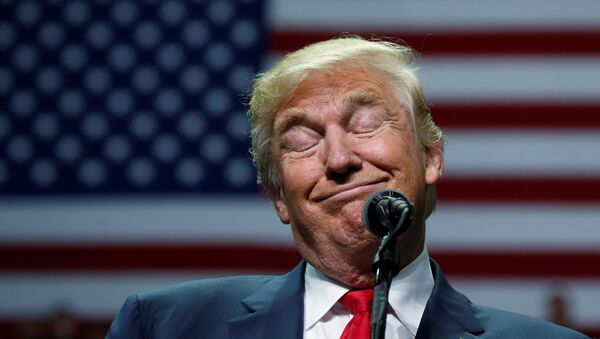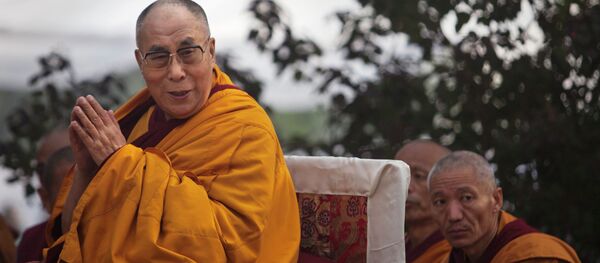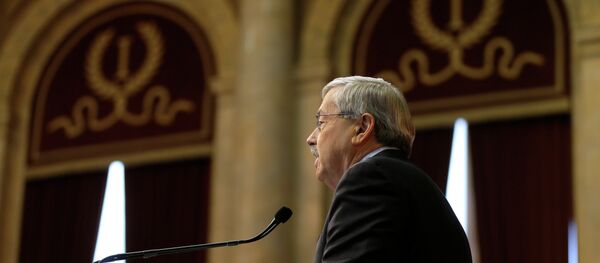In late November, the spiritual leader of Tibet, who lives in exile, indicated that he wanted to meet Trump in person, something that Chinese leadership will strongly object to. Beijing has long maintained that the Nobel Peace Prize-winning monk could destabilize the country by calling for greater autonomy for Tibet and damage China's relations with other nations.
In this context, America's support for Tibetans in exile has been of particular concern for Beijing.
"I think that it will be hard for the Trump administration to revise the policy of supporting the Dalai Lama and Tibetan separatists," Zhu Feng, an expert at Nanjing University's School of International Studies, told Sputnik. This is to a large extent due to the fact that the American leadership "has placed a particular emphasis on promoting 'democracy' and 'religious freedoms.' In reality this has nothing to do with the Tibet issue and constitutes a flagrant interference in China's domestic affairs," he added.
Washington has provided assistance to Tibetans for decades. In the 1960s, the US Central Intelligence Agency (CIA), assisted by the US State Department and the US Defense Department, poured more than $1.7 million annually into political action, propaganda and paramilitary activities meant to destabilize China.
These operations are believed to have been discontinued in the 1970s, but critics say that US intelligence services were involved in riots in Tibet in 2008, which were also backed by a disinformation campaign in the Western media timed to coincide with the 2008 Summer Olympic Games in Beijing. "The Lhasa riots are part of a consistent pattern. They constitute an attempt to trigger ethnic conflict in China," Professor Michel Chossudovsky asserted. "They serve US foreign policy interests."
More specifically, the United States spent $62 million on sustainable development, environmental conservation and cultural preservation in the Tibet Autonomous Region (TAR) and Tibetan communities in China between 2002 and 2004.
Russian political analyst Andrei Volodin of the Diplomatic Academy of the Russian Foreign Ministry did not rule out a meeting between President-elect Trump and the Dalai Lama, saying that the next US administration could use it to influence Chinese President Xi Jinping.
"It will depend on Trump and the way he shapes relations with China," the analyst noted. "I think that Trump is pragmatic. He will act based on America's foreign policy interests."
Political analyst Alexander Sergunin of the Saint Petersburg State University doubted that a meeting with the Dalai Lama is on Trump's agenda at the moment.
"I don't think that Tibet will be a priority issue for the Trump administration. As far as I know, Trump's advisors have not discussed Tibet and Taiwan in detail so far. Think tanks behind Trump tend to have anti-Chinese attitudes, but mostly when it comes to trade and geopolitics," he told Sputnik, citing Heritage Foundation as a case in point.
Previously, the 14th Dalai Lama met with Barack Obama, Bill Clinton, George Herbert Walker Bush and his son George W. Bush. The monk did not specify when he plans to go to the United States, but Chinese Foreign Ministry spokesman Geng Shuang urged foreign leaders to "handle Tibet-related issues with caution."
The spiritual leader of Tibet has never met Donald Trump, but he recently caused a stir, making a brief impersonation of the US president-elect.





